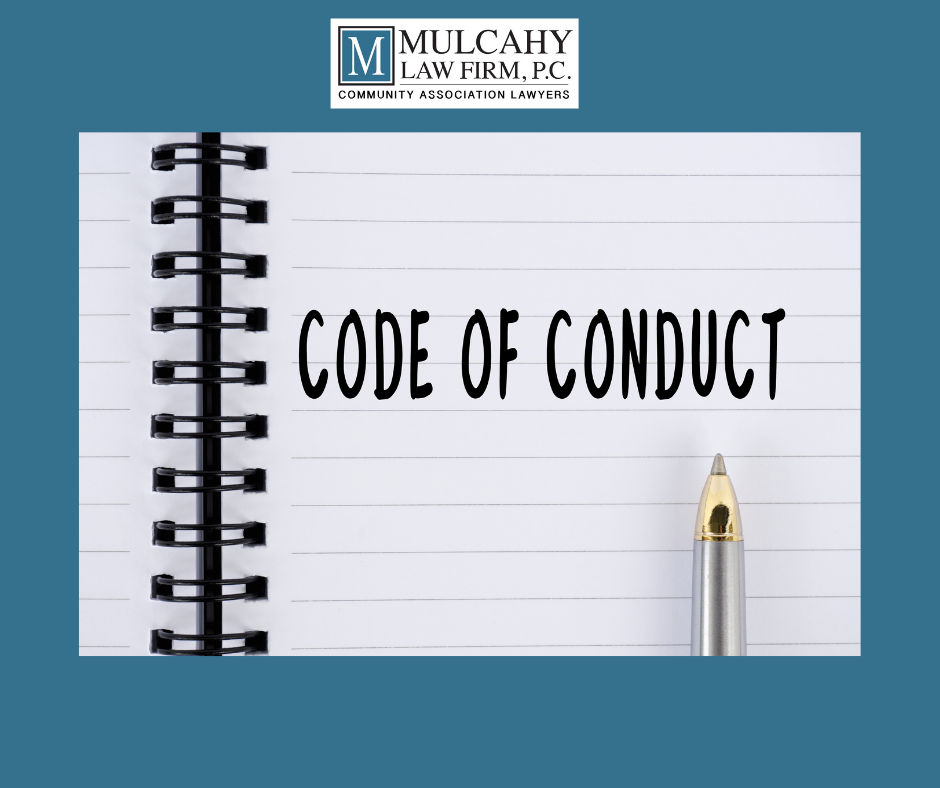I have seen a recent uptick in clients and my seminar attendees asking questions about The Board of Director’s Code of Conduct.
A Code of Conduct describes the expectations of board members during, and in some cases after, their service to the community. While many of the issues addressed are already codified by Arizona law, adoption of a written, signed Code of Conduct provides a tangible framework for board members to reference and follow in furtherance of bettering the community and working towards common goals.
What are some of the main reasons for your Board to consider adopting a Code of Conduct?
- Fiduciary Duties: A Code of Conduct will often include an explanation of the fiduciary duties that each board member is required to abide by, including the Duty of Care, Duty of Loyalty and Duty of Confidentiality (which extends beyond service on the Board).
- Conflicts of Interest: A Code of Conduct will often explain the procedure for identifying and handling an actual or potential conflict of interests that may arise.
- Orderly Meetings: A Code of Conduct will often establish procedures to help board meetings and member meetings run smoothly. The Code of Conduct will set forth expected behavior by board members to ensure that disagreements amongst the Board do not become counterproductive.
- Compliance with Governing Documents: A Code of Conduct will often codify the board members’ obligation to enforce and comply with the Governing Documents.
- Board Conflicts: A Code of Conduct may potentially provide a road map to resolution in the event that there is a conflict between/amongst board members.
Should a board member refuse to sign a code of conduct, there is no legal action to force him/her to sign. The board cannot require directors to sign a code of conduct unless the association’s documents (CCRs, bylaws or articles) require a code of conduct to be signed. Typically a Code of Conduct is signed and dated and placed in the community association records. Have a majority sign it and make it enforceable for the Board via majority vote.
The code of conduct cannot violate the association’s governing documents so it would be wise to draft the code and have it reviewed by a community association attorney. For more information on this topic visit our Firm’s Cheat Sheet entitled, The Board of Director’s Code of Conduct. Need help creating a Code of Conduct? We’re here to help you!

Board of Directors: Code of Conduct
